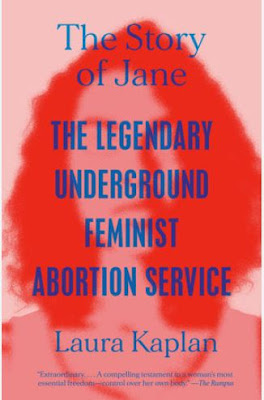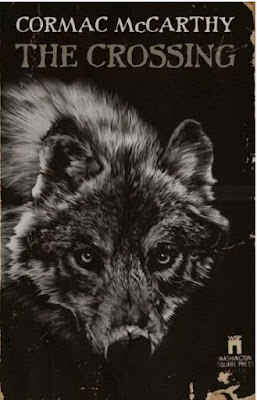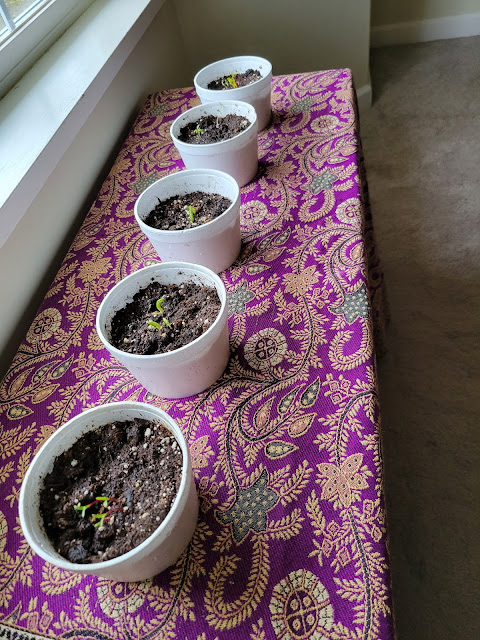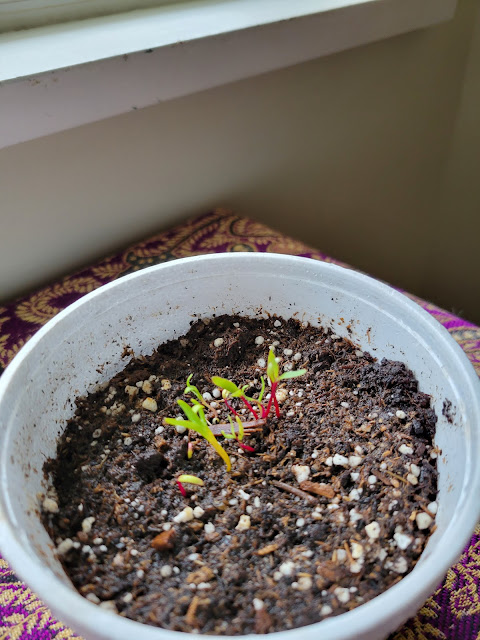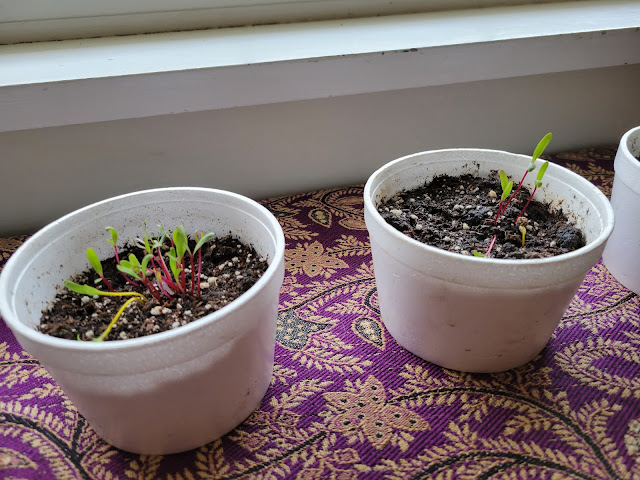As I've written countless times in this blog, and as countless other movement activists say, abortion is the
of liberation for women (and any person who can become pregnant). Without the ability to control our reproduction, we are slaves -- to our bodies, to governments, to other people's ideologies.
is a stark reminder of this.
But here's something that may surprise you: previous to the women's liberation movement (as it was then called), abortion and birth control were not talked about as women's issues. Although vast social revolutions -- the civil rights movement and the peace movement -- were re-shaping society, contraception, abortion, and violence against women** were considered personal issues, or medical issues. Women weren't part of the conversation. Or there was no conversation at all.
Feminist consciousness raising -- an instrument of the women's liberation movement -- brought a new perspective: the personal is political. Seen through this lens, the epidemic of violence against women, the lack access to birth control, and the criminalization of abortion, were not personal obstacles to be borne or somehow overcome. They became social and political issues, central to women's autonomy and personhood, necessary for all people to fully participate in the world.
Jane was part of that change.
Two intertwined stories
This book is not only a history lesson. It's an inquiry into the nature of activism, feminism, and radical transformation. In a sense, The Story of Jane is two stories.
One story is the very practical aspects of how a group of women with no prior training in healthcare came to provide an underground, illegal service that offered counseling, abortion, and after-care -- that eventually performed 11,000 safe, illegal abortions -- that inspired "Jane" services in other cities -- and that was determined that the process itself would give women full control and agency through the entire experience.
The women of Jane needed to answer innumerable questions and navigate countless challenges.
How to reach women who wanted to terminate pregnancies.
How to provide counseling that was effective and nonjudgemental.
Where services could be provided.
How to keep themselves safe while they engaged in these illegal activities.
How to find and safely integrate new members, as the service grew.
How to find a person who could perform safe abortions.
How to assist in procedures.
And eventually, how to perform abortions themselves.
The other story is about the power dynamics, and the potential for transformation, in radical activism. The women of Jane wanted to create a group that didn't replicate the power hierarchies of the larger society, one in which decisions were made through consensus by a group of equals. What they created was definitely not the former, and not quite the latter.
This part of the story resonated deeply with me. Readers who have been involved with radical grassroots activism, especially in the creation of something new, are likely to recognize themselves, too.
Women as the authors of their own lives
Everything Jane did was grounded in feminist theory. Abortion wasn't something done to a woman. It was more than a choice: the woman was an active participant in the process.
Until the late 1960s, modern medicine was almost exclusively a male domain. Patients had virtually no decision-making power, and female patients were the bottom of the food chain. This most definitely included OB/GYN care.
Griswold, the landmark 1965 Supreme Court decision that legalized contraception, applied only to married couples. Single women were prohibited from accessing birth control until 1972 (Eisenstadt v. Baird). Most women didn't even understand their own anatomy and physiology, and there was little or no opportunity for education.
The women's liberation movement changed that. Jane was on the very forward edge of that transformation.
The women of Jane were determined that a "Jane abortion" was not only physically safe, but was also a positive experience. It offered not only safety, but agency. It brought (in their own words) "a feminist perspective which [women] could use as a tool to understand and improve their lives". Jane "wanted women to grow from their contact with the service".
In this new paradigm, the decision to terminate a pregnancy had the potential to be incredibly empowering. As one Jane client put it, "I've just had an illegal abortion and it was the best medical experience I've ever had".
Groups are hard
I was very interested in Jane's group dynamics, which I recognized from my own experiences with both the Haven Coalition, a network supporting women traveling to New York City to access abortion services, and the War Resisters Support Network, which supported U.S. soldiers opposed to the invasion and occupation of Iraq.
Anyone who has been involved with complex, high-stakes, and potentially dangerous activism will find the stories of how Jane shared information and made decisions edifying, and possibly validating. I especially related to the structure that evolved organically (and not necessarily intentionally): a series of concentric circles, based on who was entrusted with certain information.
As a feminist organization, Jane struggled with the dynamics that would churn through all feminist organizations of its day: it was mostly white, heteronormative, and middle class. I remember a Haven member observing that Haven was their most consistent cross-class experience. We were mostly women of privilege helping mostly women without. This was part of Jane as well.
That imbalance creates a lot of opportunity for awareness and growth. It can sometimes be awkward and it can sometimes be unintentionally offensive. It necessitates a lot of difficult conversations. It can be challenging, both to live with and to try to change.
Some members of Jane were people of colour, and at least one woman of colour was part of the inner circle, and in the book, she attests to the true sisterhood that existed among the group. But of course her presence didn't doesn't change the basic dynamics of power, class, and privilege.
How they got away with it... until they didn't
Jane operated in a kind of netherworld of open secrets. Thousands of women found Jane, through cryptic flyers, ads in the alternative press, and word of mouth. Hospitals and physicians, ministers and lawyers, police and professors: all referred women to Jane. The Chicago police looked the other way, and police department employees and the families of police officers used the service.
Jane adopted many complicated practices to keep themselves and their patients safe. But Jane was heavily surveilled; eventually one of their locations was raided and some members were arrested. The story of the arrest and aftermath are gripping and sometimes ironically amusing.
Once the women of Jane learned that the police raid was not ordered from above -- and in fact "if certain higher-ups had been on duty that day, the bust would not have happened" -- the group swung back into action. It was a reduced group, but it survived and continued its work. That takes some kind of courage.
The Story of Jane is full of surprising and enlightening details. Here are some things I learned.
* Members of the clergy were integral to the early pro-abortion-rights movement. I knew that faith leaders were important in both the civil rights and peace movements, but I didn't realized they had been so active in the early fight for abortion rights, too. Ministers referred women to Jane and other illegal alternatives, and were able to use their moral standing -- their bullet-proof vestments -- to push for reform.
* During the raid and arrests, the police kept demanding, "Where is he? Where is the doctor? Where is he?". But there was no "he". The police could not conceive that this was all taking place without a doctor, and in fact without any men at all.
* At the time of the raid and arrest, hundreds of women were waiting for Jane abortions. Jane members called each one to discuss their options. Abortion clinics in New York and Washington DC, where abortions were already legal, said, "If your women can get to us, we'll give them free abortions."
* When an experimental abortion procedure became available in a different city, about 20 Jane clients agreed to try it. Jane chartered a bus and the women travelled together. The opposition was huge, vocal, and borderline violent -- and from within the abortion-rights movement. The women on the bus became a team, determined to continue, and supported each other throughout the experience. This was a fascinating and largely unknown piece of movement history.
Words of their own
In the epilogue, I appreciated Kaplan's analysis of Roe v. Wade, what it was and was not.
Roe was never feminist. It was a validation of the rights of doctors to make decisions for their patients. It was not a validation of a woman's right to decide whether and when to bear a child.
I'll end this review with two quotes from Kaplan's book. This is the final paragraph:
The service embodied a shift in consciousness, from asking for something to doing it ourselves. Deborah told me that she tries to convey to her students that if a thing needs to be done, we can do it, figure it out, step by step. We in Jane learned that social change is not a gift given by leaders and heroes, but is accomplished by ordinary people working together. We make it happen by what we choose to do.
And this, a member reflecting on her decision to become involved.
I was . . . a law-abiding citizen with a fairly strong belief in the rule of law. It [being involved in Jane] gave me a new image of myself, not only of doing something that was against the law, but, more important, being part of a group of people taking matters into their own hands, because the law was not meeting their needs.
--------
* In 1981 I attended pro-choice actions, but wasn't yet an organizer. The main focus of my activism at that time was anti-apartheid. I became a pro-choice organizer in 1985 or 1986.
** The expressions "domestic violence," "relationship violence," and "intimate partner violence" were not used at this time. In the larger world, this abuse was called "wife beating". People in the movement called it "violence against women".


